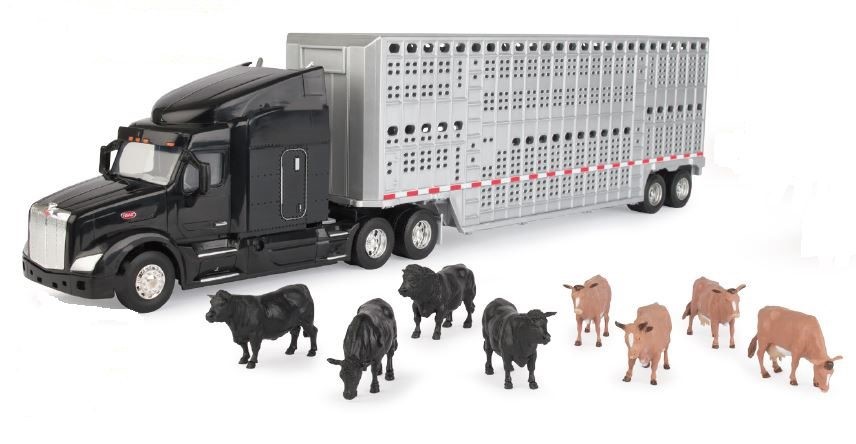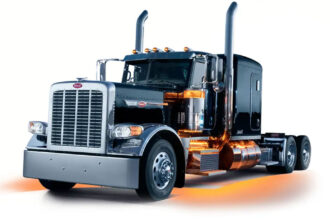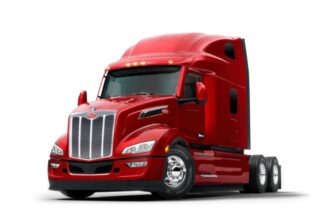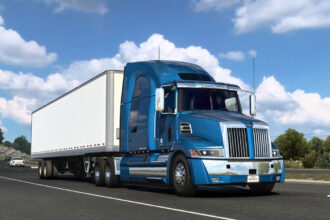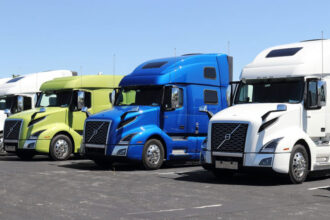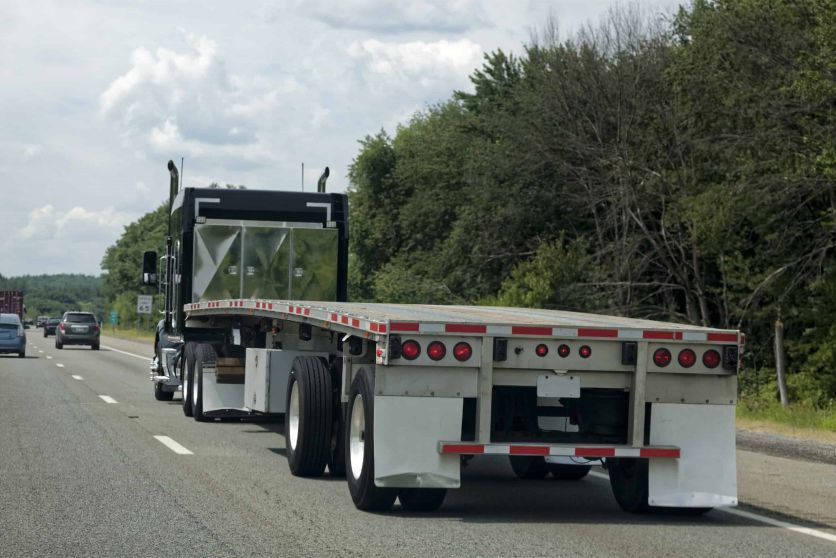Table of Contents
Are you ready to walk through the essential steps and strategies required to start your Livestock Truck Business successfully? If you’re looking to embark on this entrepreneurial journey, you’re not only stepping into the world of agriculture but also embracing the responsibility of safeguarding and supporting the livelihoods of farmers. A Livestock Truck Business, in essence, is a venture that specializes in the safe and efficient transportation of farm animals, playing a pivotal role in the agricultural industry. These businesses serve as a lifeline for livestock farmers, ensuring that their valuable animals are transported securely and in compliance with regulations.
So, fasten your seatbelt, because by the end of this journey, you’ll be well-prepared to hit the road towards agricultural prosperity.
To start a livestock truck business:
1. Conduct Research and Education
To initiate a livestock truck business, research the local farming community, their demands, and the types of livestock commonly raised. Know the ins and outs of your target market. For instance, if you’re in a region known for cattle farming, understand the specific requirements for transporting cattle, such as secure pens and proper ventilation. Educate yourself on livestock transportation regulations, animal welfare standards, and the specific needs of different species.
2. Develop a Business Plan
To begin a livestock truck business, create a comprehensive business plan. Your business plan should be your guiding document, outlining your business goals, target market, and financial projections. Are you aiming to become a regional livestock transport leader, or are you targeting a specific niche, like horse transportation for equestrian events? Your business plan should also outline your pricing structure. Consider factors such as distance, type of livestock, and any additional services you’ll provide, like feeding or resting periods. Detail your marketing approach. How will you attract and retain customers? Will you focus on building relationships with local farmers or target a broader audience online?
3. Choose a Legal Structure and Register Your Business
To launch a livestock truck business, decide on the legal structure for your business, such as a sole proprietorship, LLC, or corporation. Each structure has its advantages and disadvantages, so choose the one that aligns with your long-term goals and financial situation. Once you’ve made your decision, register your business with the appropriate authorities, ensuring that you comply with all licensing and permitting requirements for livestock transportation in your area. These requirements can vary by location, so research them thoroughly.
4. Acquire Fleet and Equipment
To embark on a livestock truck business, invest in suitable livestock trucks and trailers designed for safe and humane animal transportation. Ensure that your vehicles meet all regulatory standards and are equipped with proper ventilation, lighting, and safety features. For instance, trailers should have non-slip flooring to prevent animals from falling during transit. Regular maintenance is crucial to keeping your fleet in top condition, so establish a maintenance schedule to address wear and tear promptly.
5. Secure Adequate Insurance
To kickstart a livestock truck business, obtain insurance coverage tailored to the livestock transportation industry. Your insurance portfolio should include liability insurance, cargo insurance to protect the animals you’re transporting and coverage for your vehicles. Insurance provides peace of mind and financial security in the event of accidents or unforeseen circumstances, such as road accidents or adverse weather conditions that might affect your cargo.
6. Prioritize Animal Welfare
To establish a livestock truck business, train your staff extensively on best practices for handling and caring for livestock during transportation. Develop and implement strict protocols for loading, unloading, and ensuring the comfort and safety of the animals. Consider certifications or training programs that focus specifically on animal welfare in transportation. For example, understand stress indicators in livestock and how to mitigate them for the well-being of the animals and your business’s reputation.
7. Plan Routes and Schedule Operations
To set in motion a livestock truck business, plan routes that have suitable rest stops and accommodations for the animals. Efficient route planning is essential to minimize travel stress for the animals, optimize fuel usage, and ensure timely deliveries. Your route planning should take into account factors such as the distance to be covered, road conditions, and the type of livestock you’re transporting. Develop a reliable scheduling system to meet the demands of your clients while ensuring the well-being of the livestock. This might involve coordinating with farms for loading and unloading at convenient times.
>>>PRO TIPS: Livestock Truck Business Ideas
8. Hire and Train Staff
To open up a livestock truck business, recruit skilled drivers and handlers with experience in livestock transportation. These individuals should have not only the necessary driving skills but also a deep understanding of animal behavior and needs. Provide comprehensive training on safety procedures, animal handling, and emergency response. Employees should be knowledgeable about the different species you transport and how to care for them during transit. Encourage continuous learning and certifications to keep your team’s skills up-to-date.
9. Build Strong Client Relationships
To institute a livestock truck business, develop strong relationships with farmers, ranchers, and agricultural businesses in your area. Your Livestock Truck Business’s reputation relies on your ability to provide exceptional customer service. Be responsive to the needs of your clients and maintain clear and open communication. Consider loyalty programs or referral incentives to encourage repeat business and word-of-mouth referrals within the agricultural community.
10. Implement Marketing and Promotion Strategies
To kick off a livestock truck business, create a solid marketing strategy to attract and retain customers. Utilize online platforms, local agricultural events, and industry associations to connect with potential clients. Highlight your commitment to animal welfare and your ability to meet the transportation needs of farmers. Consider creating a professional website with details about your services, pricing, and contact information. Share success stories and testimonials from satisfied clients to build credibility. Use social media to showcase your expertise and engage with the farming community. Offering educational content, such as articles or videos on livestock transportation best practices, can position you as an industry leader.
11. Manage Finances Effectively
To commence a livestock truck business, manage your finances effectively for the sustainability of your business. Maintain accurate financial records and budget wisely. Keep track of expenses related to vehicle maintenance, fuel, insurance, and staff wages. Regularly review your revenue and expenses to assess your financial health. Adjust your pricing strategy as needed to ensure profitability while remaining competitive. Consult with a financial advisor or accountant experienced in the transportation industry to help you make informed financial decisions.
12. Ensure Safety and Regulatory Compliance
To pioneer a livestock truck business, stay updated on all relevant regulations and safety standards governing livestock transportation. This includes regulations related to vehicle safety, animal welfare, and road transport. Regularly inspect your vehicles for compliance and safety, addressing any issues promptly. Implement a rigorous maintenance schedule to prevent breakdowns that could endanger the safety of the animals and your staff. Invest in safety equipment, such as first aid kits and fire extinguishers, to handle emergencies effectively.
13. Establish Emergency Protocols
To start a livestock truck business, prepare for unexpected situations by developing comprehensive emergency response plans. Train your staff on how to handle accidents, animal escapes, or adverse weather conditions safely. Ensure that your team knows the proper procedures for contacting emergency services and providing immediate care to injured animals. Equip your vehicles with emergency equipment, such as warning triangles, to enhance safety on the road. Conduct regular emergency drills and simulations to ensure that everyone is prepared to respond effectively in high-stress situations.
14. Explore Scaling and Growth Opportunities
To set up a livestock truck business, consider expanding your fleet to meet increasing demand or offering additional services, such as long-distance transportation or specialized trailers for specific livestock. Explore new markets or regions where your services may be in demand. Always align your growth strategies with your business plan and financial capabilities to ensure sustainable expansion.
>>>GET SMARTER: Livestock Business Accessories You Need to Succeed
15. Continuously Learn and Adapt
To pioneer a livestock truck business, seek opportunities for improvement and adaptation to ensure the long-term success of your business. Stay informed about industry trends, technological advancements, and changes in regulations. Attend industry conferences, join relevant associations, and network with other professionals in the field. Embrace innovation, such as advanced tracking systems or eco-friendly vehicle options, to stay ahead of the curve and provide the best possible service to your clients.
Recap
In summary, launching a livestock truck business demands diligence and a commitment to animal welfare. It begins with research and careful planning, followed by adherence to regulations and a focus on efficiency and client relationships. As your business matures, staying informed and adaptable will be your keys to long-term success in this specialized industry. Starting a Livestock Truck Business involves thorough research and planning. By following these steps and prioritizing the well-being of the animals you transport, you can build a successful and reputable business in this specialized field.


